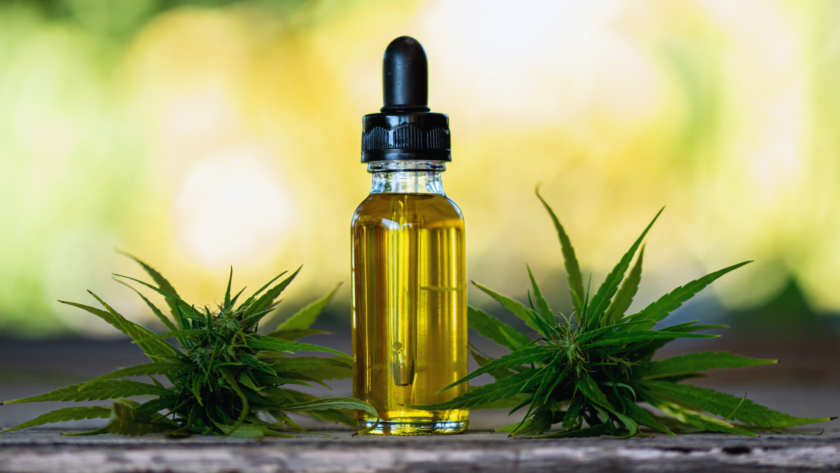The popularity of cannabis-infused products is on the rise, reflecting a shift in consumer preferences and attitudes toward cannabis. Many people are discovering the benefits of incorporating these products into their daily routines, whether for relaxation, wellness, or culinary exploration. This trend not only highlights the versatility of cannabis but also signals a growing acceptance of its use in everyday life.
As more states begin to legalize cannabis, a wider variety of infused products are entering the market. From beverages and edibles to skincare items and supplements, consumers now have numerous options to choose from. The diversity of these products caters to a range of tastes and preferences, making cannabis-infused options appealing to a broader audience.
The trend signifies a notable change in how society views cannabis, moving from stigma to mainstream acceptance. As education around the plant increases, consumers are more informed about the potential benefits and risks associated with cannabis use. This expanding knowledge base is likely to drive further interest and innovation in the cannabis-infused market.
Cannabis Industry Overview
The cannabis industry is rapidly evolving, driven by market demand and changing regulations. A mix of increasing social acceptance and economic opportunities is shaping its expansion.
Market Analysis and Forecast
The global cannabis market was valued at approximately $20.5 billion in 2023 and is projected to grow at a CAGR of 26.7% from 2024 to 2030. This growth is largely attributed to the rising demand for cannabis-infused products across various sectors, including food, beverages, and cosmetics.
Key regions contributing to market growth include North America and Europe, where legalization has boosted consumer accessibility. The availability of diverse product segments, such as CBD oils, edibles, and topicals, fuels further interest. As the market matures, companies are increasingly investing in research and development to innovate and differentiate their offerings.
Growing Social Acceptance and Legalization
Social attitudes toward cannabis have shifted significantly, leading to increased acceptance. As of 2025, over 40% of U.S. states have legalized cannabis for recreational use, influencing public perception positively.
Countries worldwide are following suit, with several nations decriminalizing or legalizing cannabis for medicinal and recreational purposes. This evolving legal landscape fosters a more informed consumer base, encouraging responsible use and broader market participation. Additionally, advocacy and education efforts further enhance understanding and acceptance in society.
Types of Cannabis-Infused Products
The cannabis market has expanded to include a wide variety of infused products. Among these are edibles, infused beverages, and applications for medical use. Each category offers unique options tailored to different consumer needs.
Cannabis-Infused Edibles
Cannabis-infused edibles are food products containing THC, CBD, or a mix of both. Common examples include gummies, chocolates, and baked goods.
- Dosing: It’s vital for consumers to know the dosage, often indicated in milligrams of THC or CBD.
- Variety: Edibles come in numerous flavors and strengths, catering to diverse preferences.
- Onset time: Depending on the type, effects can take 30 minutes to 2 hours to feel, making caution essential for new users.
These products appeal to those seeking discretion and a different consumption method compared to smoking.
Infused Drinks and CBD Oil
Infused drinks include teas, coffees, and sparkling beverages enhanced with cannabis compounds. They provide a refreshing alternative to traditional consumption methods.
- CBD Oil: This oil is derived from the cannabis plant and is often used for its therapeutic properties without the psychoactive effects of THC.
- Varieties: Brands offer a range, from caffeinated to non-caffeinated options, ensuring there’s something for everyone.
- Effects: Similar to edibles, drinks can have delayed effects, requiring users to be mindful of their intake.
Many consumers find infused beverages to be an enjoyable way to incorporate cannabis into their daily routine.
Medical Cannabis Applications
Medical cannabis products cater to patients managing various health conditions. These come in many forms, including oils, capsules, and tinctures.
- Focus on CBD & THC: Patients often choose between CBD for its therapeutic benefits without intoxication or THC for pain relief.
- Personalization: Medical cannabis applications can be tailored to specific ailments, including chronic pain, anxiety, and insomnia.
- Regulations: Patients must typically obtain prescriptions, ensuring the right product and dosage is provided.
This category underscores the evolving role of cannabis in healthcare, with increasing recognition of its potential benefits.
Market Dynamics and Consumer Behavior
The cannabis-infused products market is characterized by diverse consumer preferences and innovative product offerings. Understanding market segmentation and the competitive landscape is crucial to grasping how consumers interact with these products.
Market Segmentation and Cannabinoids
Market segmentation in the cannabis-infused products sector often revolves around demographics, usage patterns, and preferences for cannabinoids. Key consumer segments include:
- Recreational Users: Typically seek products for enjoyment and relaxation.
- Medical Users: Utilize products for health benefits such as pain relief or anxiety reduction.
- Health-Conscious Consumers: Favor products with specific cannabinoids, such as CBD, for wellness improvements.
Cannabinoids like THC and CBD are central to segmentation, influencing product development and marketing strategies. For instance, CBD products are often targeted at health-focused consumers, while THC products appeal to recreational users.
Competitive Landscape and Key Players
The competitive landscape of cannabis-infused products is dynamic, with numerous players entering the market. Key companies include:
- MedMen: Known for their retail locations and product variety.
- Charlotte’s Web: Specializes in CBD products for wellness.
- Canopy Growth: Offers a diverse range of infused products across various markets.
As companies innovate, they often compete on product quality, regulatory compliance, and brand reputation. The landscape is evolving with increased mergers and partnerships, driving growth and accessibility in the market. This competition ultimately shapes consumer choices and product availability.




